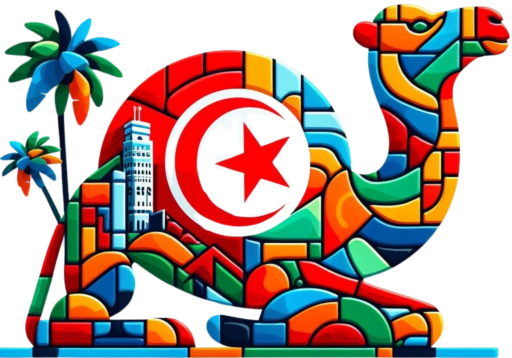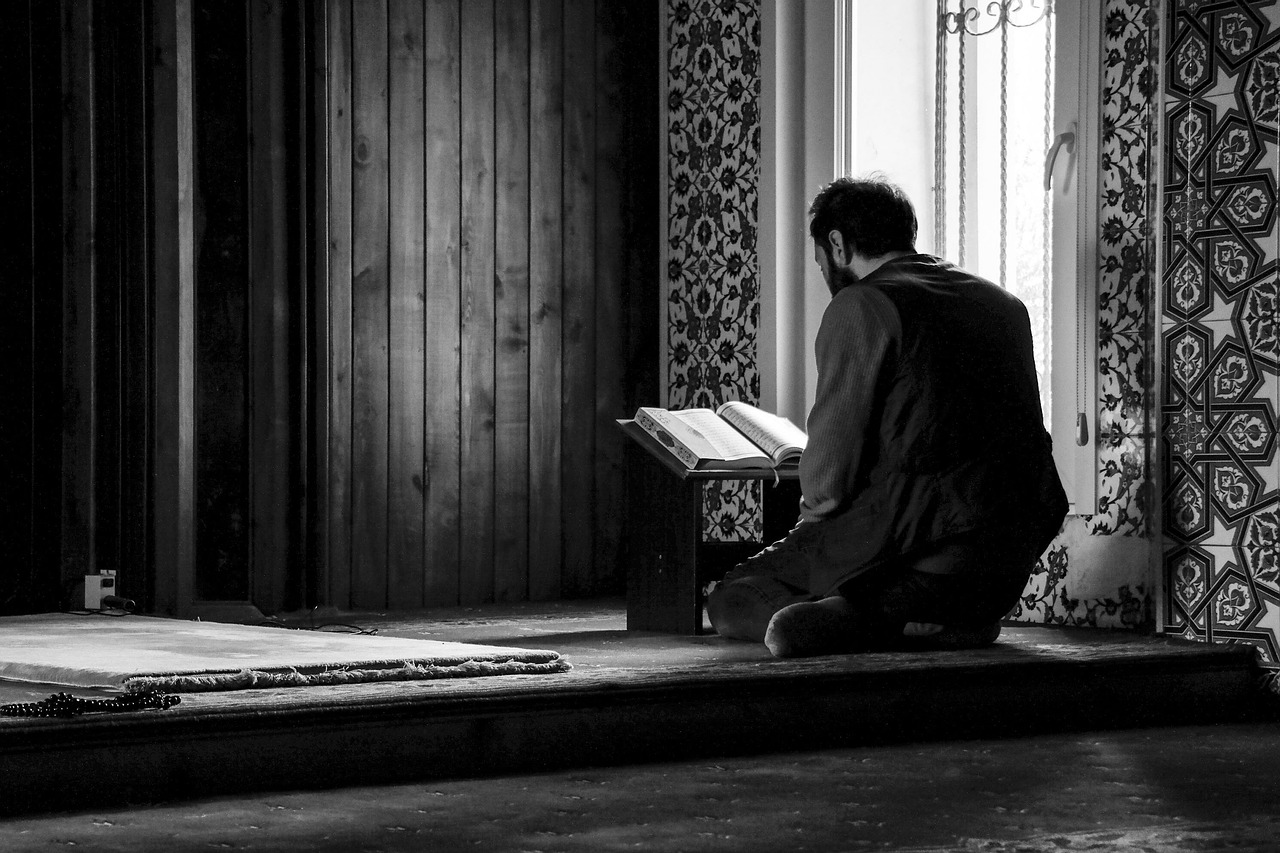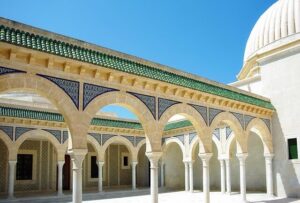Islam in Tunisia: A Spiritual and Cultural Journey
Islam in Tunisia is a fundamental component of Tunisian culture and society. With a millennia-old history, Islam has deeply influenced the country’s traditions, arts, architecture, and daily life. Exploring Islam in Tunisia means immersing oneself in a rich and complex heritage, from historic mosques to the scrupulously observed Islamic prayer times.
History of Islam in Tunisia
The arrival of Islam in Tunisia dates back to the 7th century, with the Arab conquest of North Africa. In a short time, the region converted to the new faith, becoming an important center of Islamic culture and spirituality. The Aghlabid dynasty, in the 9th century, significantly contributed to the spread of Islam and the construction of important mosques.
Over the centuries, Islam in Tunisia has undergone various influences, including Ottoman and Andalusian ones. However, it has always maintained its specific identity, characterized by a moderate approach open to interfaith dialogue.
Today, Islam in Tunisia remains a driving force in society, influencing politics, the economy, and the country’s cultural life.
Islamic Traditions and Practices in Tunisia
Islamic traditions and practices are deeply rooted in the daily lives of Tunisians. The month of Ramadan is a period of fasting, prayer, and reflection, during which families gather to share the evening meal of Iftar. The Eid al-Fitr and Eid al-Adha celebrations are observed with great solemnity.
Islamic weddings are significant events, marked by traditional rituals and multi-day festivities. The birth of a child is also celebrated with joy and gratitude to Allah.
Circumcision, pilgrimage to Mecca, and the recitation of the Quran are other important practices for Tunisian Muslims. Generosity and solidarity with those in need are fundamental values of Islam in Tunisia.
Islamic Prayer Times in Tunisia
Islamic prayer times structure the daily life of Tunisian Muslims. Five times a day, the faithful go to mosques to pray to Allah. Prayer times vary depending on geographical location and time of year.
The five daily prayers are:
- Fajr (dawn)
- Dhuhr (noon)
- Asr (afternoon)
- Maghrib (sunset)
- Isha (night)
Websites and apps are available to check the specific Islamic prayer times for each Tunisian city. Observing prayer times is an important duty for Muslims, as prayer is considered a moment of connection with Allah.
The Most Important Mosques in Tunisia
Tunisia boasts a rich heritage of historic mosques, testifying to the long and deep presence of Islam in the country. The Great Mosque of Kairouan is one of the most important Islamic places of worship in North Africa, dating back to the 7th century.
The Zitouna Mosque in Tunis is another key center of Islamic culture and spirituality. Other important mosques include the Uqba Mosque in Kairouan and the Sidi Mahrez Mosque in Tunis.
These mosques are not only places of worship but also important centers of learning and dissemination of Islamic culture. Visiting them allows one to appreciate the beauty of Islamic architecture and learn about the history of Islam in Tunisia.
The Influence of Islam on Tunisian Culture
Islam has had a profound influence on Tunisian culture, shaping the country’s arts, music, literature, and architecture. Islamic art is characterized by geometric patterns, Arabic calligraphy, and floral decorations. Islamic music features traditional instruments such as the oud and qanun.
Islamic literature has produced significant works of poetry, prose, and philosophy. Islamic architecture is distinguished by mosques with their minarets, domes, and inner courtyards.
Islam has also influenced Tunisian cuisine, with traditional dishes such as couscous, tajine, and sweets made with dates and honey. Tunisian culture is a fascinating mix of Arab, Berber, African, and European influences, with Islam as a unifying element.
Tourism and Islam in Tunisia
Tunisia is a popular tourist destination, attracting visitors with its beaches, archaeological sites, and rich culture. Religious tourism is growing, with many visitors interested in learning about Islam in Tunisia and visiting its historic mosques.
It is important for tourists to respect local traditions and customs, dressing appropriately when visiting mosques and places of worship. During Ramadan, it is advisable to avoid eating, drinking, and smoking in public during daylight hours.
Tourism can help promote intercultural understanding and interfaith dialogue. Visiting Tunisia means discovering a fascinating country with a millennia-old history and a culture full of surprises. Islam in Tunisia is an integral part of this experience.
To deepen your knowledge of Islam, visit Al-Islam.org.
For updated travel information, click here.
To read more of our articles, click here.





